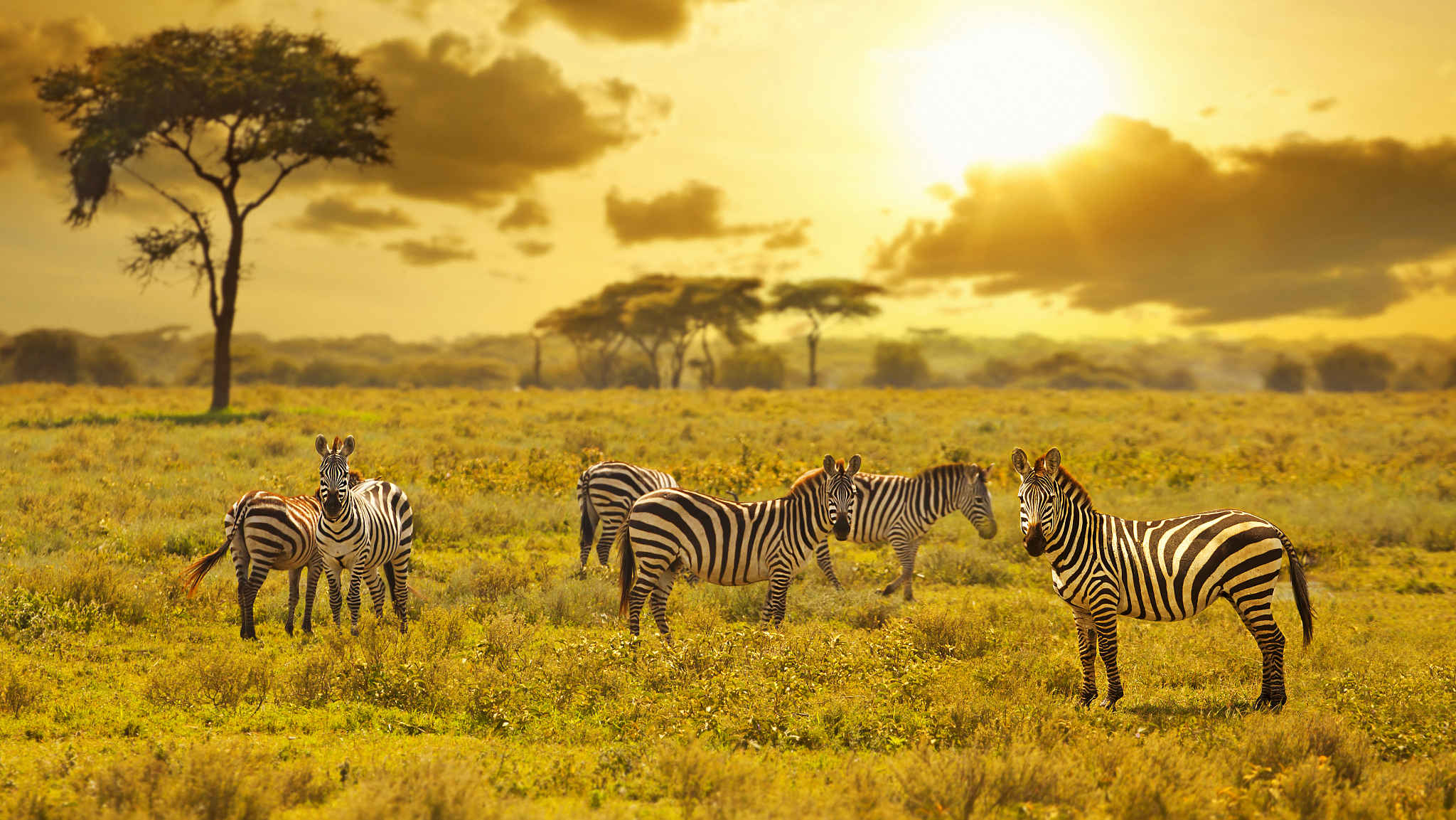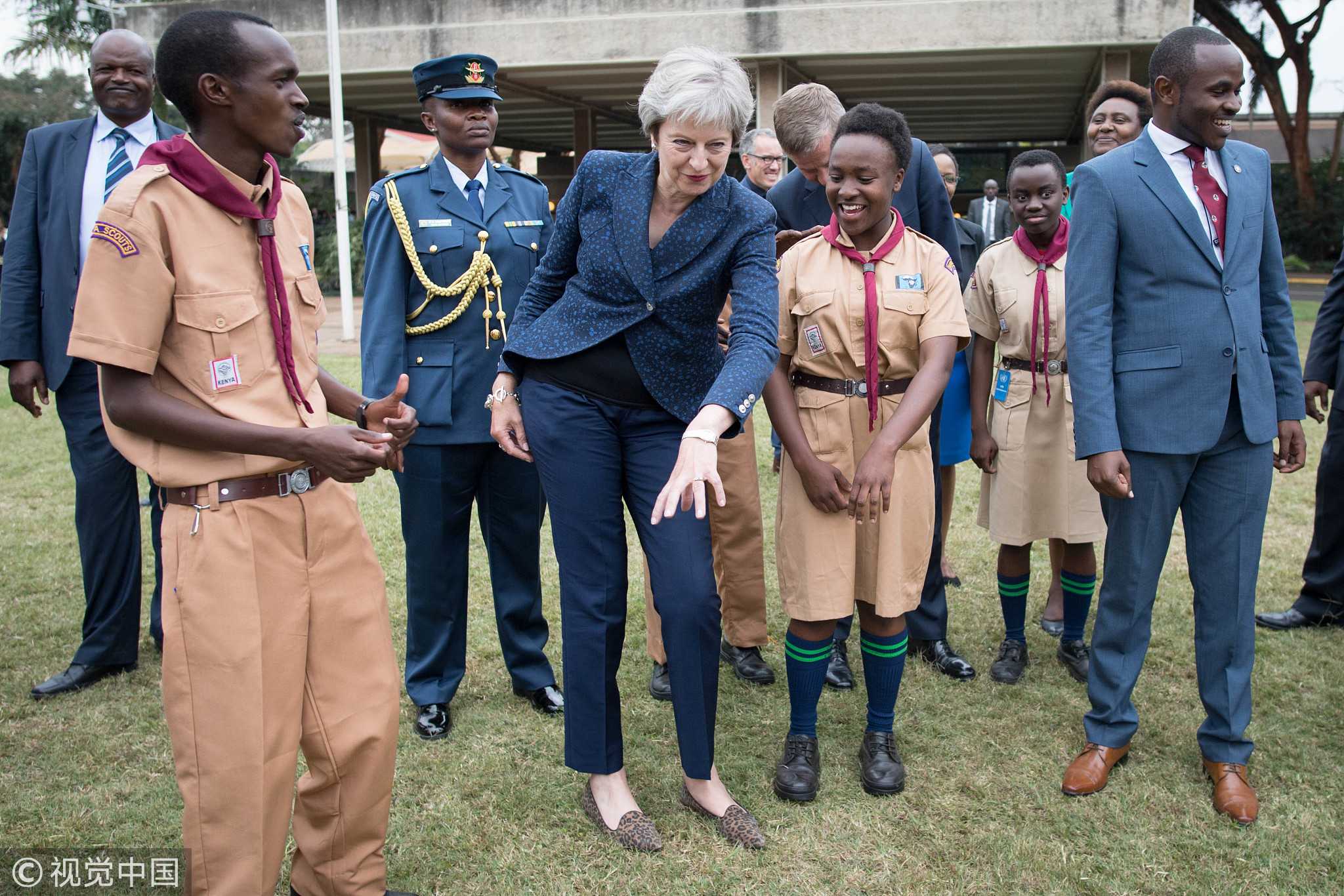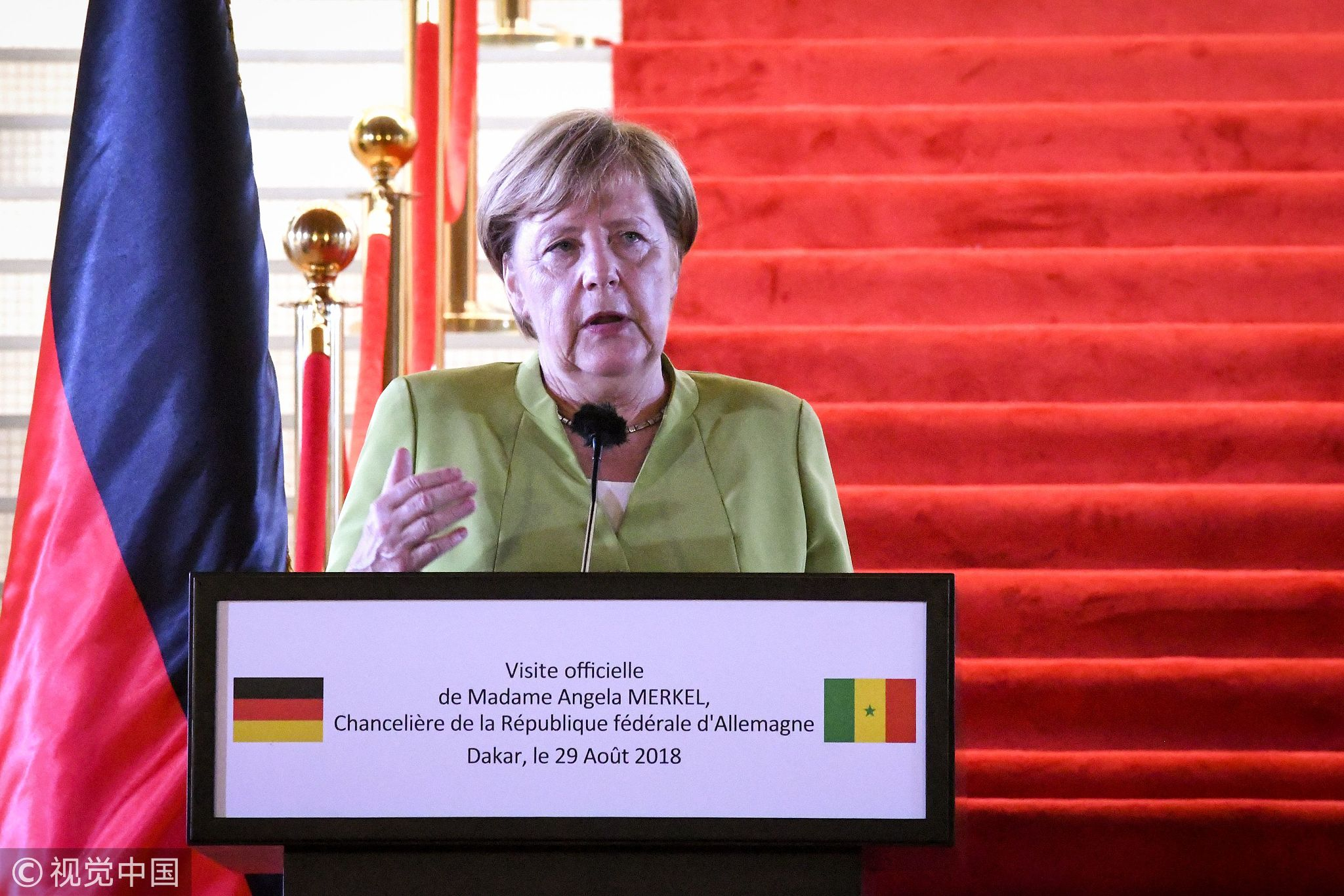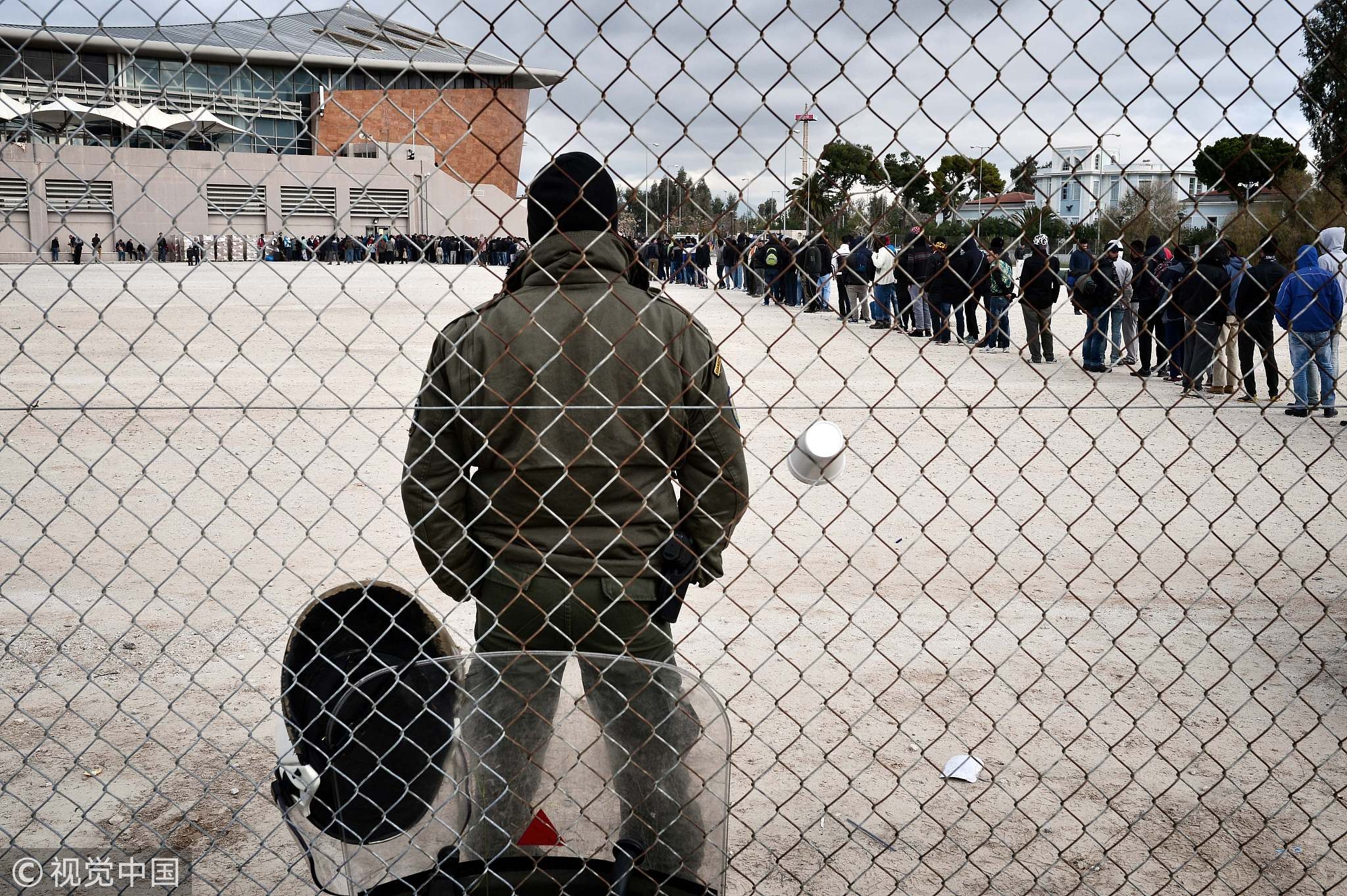
Opinions
09:04, 02-Sep-2018
Opinion: China and Europe in Africa, competition or cooperation?
Updated
08:46, 05-Sep-2018
By Sun Hong

Editor's note: Sun Hong is an associate research fellow at the Institute of African Studies of the China Institutes of Contemporary International Relations. The article reflects the author's views, and not necessarily those of CGTN.
UK Prime Minister Theresa May and German Chancellor Angela Merkel recently paid separate trips to Africa, with the issues of trade and illegal immigration topping their agendas. The leaders' visit came shortly before the Beijing Summit of the Forum on China-Africa Cooperation, triggering some to question whether the three countries are competing against each other in Africa.
In fact, China and Europe cooperate more than they compete against each other in the African continent.

UK Prime Minister Theresa May dances with scouts at the United Nations offices in Nairobi, Kenya on August 30, 2018. /VCG Photo
UK Prime Minister Theresa May dances with scouts at the United Nations offices in Nairobi, Kenya on August 30, 2018. /VCG Photo
The UK's 'return' to Africa?
May’s visit marked the first time a British prime minister visited the Sub-Saharan region since 2013, and is considered a sign of the return of the country to Africa since the Brexit process started.
The countries May visited – South Africa, Nigeria, and Kenya – all maintain close political, economic, and military cooperation with the UK and are all Commonwealth countries. During her stay in South Africa, May announced that the UK will establish a "new partnership" with Africa based on common prosperity and security, setting the tone for UK-Africa relations after Brexit.
Since the Brexit process was initiated, the UK has become significantly more interested in the African market, especially in the Commonwealth countries in the African continent, with which the UK is traditionally close. South Africa, Nigeria, and Kenya are the largest African trading partners of the UK. In 2017, the UK promised to retain the preferential trading policies for Africa after Brexit.
During May’s latest visit, it was announced that the five countries of the Southern African Customs Union, along with Mozambique, will become the first batch of countries to enjoy such preferential treatment. May also promised to leverage British private sector investment into Africa through aid programs, and to make Britain the largest investor among the G7 countries in Africa.
The UK also attaches great importance to counter-terrorism efforts in Africa, especially in Kenya and Nigeria, which have been pestered by terrorism in recent years. The UK also believes that a safer environment could stem the flow of illegal immigrants from Africa to Europe. The majority of overseas British military personnel are deployed in Africa, mostly involved in regional counter-terrorism and supporting UN peacekeeping missions. The UK has permanent military training facilities in Kenya and dispatches six infantry battalions every year to Kenya to conduct eight-week military drills.
Nigeria is an important partner of the UK on counter-terrorism in West Africa. The northeast of Nigeria has long been struck by terrorist activities from Boko Haram. There have been over 30 cases of suicide bombing in the first half of this year alone, which have claimed the lives of around 300 people. The UK has long been providing training to the Nigerian military personnel and has trained around 30,000 Nigerian military personnel in recent years.
Last September, the UK announced that it would provide 200 million pounds (255 million US dollars) of military aid for Nigeria over the next five years. During May’s visit, she further strengthened security commitment in these two countries, offering seven million pounds to support the peacekeeping mission in Somalia and signing a defense and security agreement with Nigeria.

German Chancellor Angela Merkel speaks in Dakar on August 29, 2018. /VCG Photo
German Chancellor Angela Merkel speaks in Dakar on August 29, 2018. /VCG Photo
Merkel and illegal immigration
Slightly different from May, Merkel focused more on the issue of illegal immigration during her visit. According to a Frontex report, among the illegal immigrants entering the EU in 2017, two thirds came from Africa. Over the past few years, Merkel was heavily criticized domestically for her “overly tolerant” attitude toward refugees and illegal immigrants. Many EU citizens are also against the plan to distribute illegal immigrants among EU countries.
Countries at the northern coast of the Mediterranean Sea, such as Malta and Italy, were up in arms as a result of boats arriving at their shores with illegal immigrants on board. Germany hopes to stem the flow of illegal immigrants through measures such as stimulating economic growth in African countries, improving their security environment, and setting up immigration checkpoints in the Sahel region.
In July 2017, during the G20 Summit in Hamburg, Germany proposed the Compact with Africa, helping improve the investment environment in certain African countries and channeling investment from industrialized countries into Africa. Senegal and Ghana, which Merkel visited in her latest trip, have already joined the compact.

A riot policeman stands guard at a temporary housing facility for migrants and refugees located in a former Olympic hall in the Faliro suburb of Athens, on December 11, 2015. /VCG Photo
A riot policeman stands guard at a temporary housing facility for migrants and refugees located in a former Olympic hall in the Faliro suburb of Athens, on December 11, 2015. /VCG Photo
China and Europe in Africa: More cooperation than competition
That the leaders of Germany and the UK visiting Africa shortly before the Beijing Summit of the Forum on China-Africa Cooperation has been interpreted by many Western media outlets as a "scramble for Africa" against China. In fact, there is more cooperation than competition between China and European countries, including the UK and Germany, in Africa.
On one hand, China and European countries have their respective advantages in Africa and are all interested in cooperation there. China and Germany have already had an in-depth discussion on preliminary cooperation in Angola and Rwanda. China and the UK have already started practical cooperation on oil and gas exploitation in Uganda.
On the other hand, under the current international circumstances, both China and Europe are committed to defending the existing multilateral trading system, and objecting unilateralism and trade protectionism. May said in South Africa that the UK steadfastly objects to unilateral actions that set up trade barriers and go against the prevailing international economic order.
As the continent with the highest number of developing countries, addressing the challenges faced by Africa is the responsibility of all countries. Free trade is the only way for Africa to be incorporated into the global economic and industrial chain, for issues such as unemployment caused by poverty to be addressed, and for global threats such as terrorism and illegal immigration to be mitigated.

SITEMAP
Copyright © 2018 CGTN. Beijing ICP prepared NO.16065310-3
Copyright © 2018 CGTN. Beijing ICP prepared NO.16065310-3